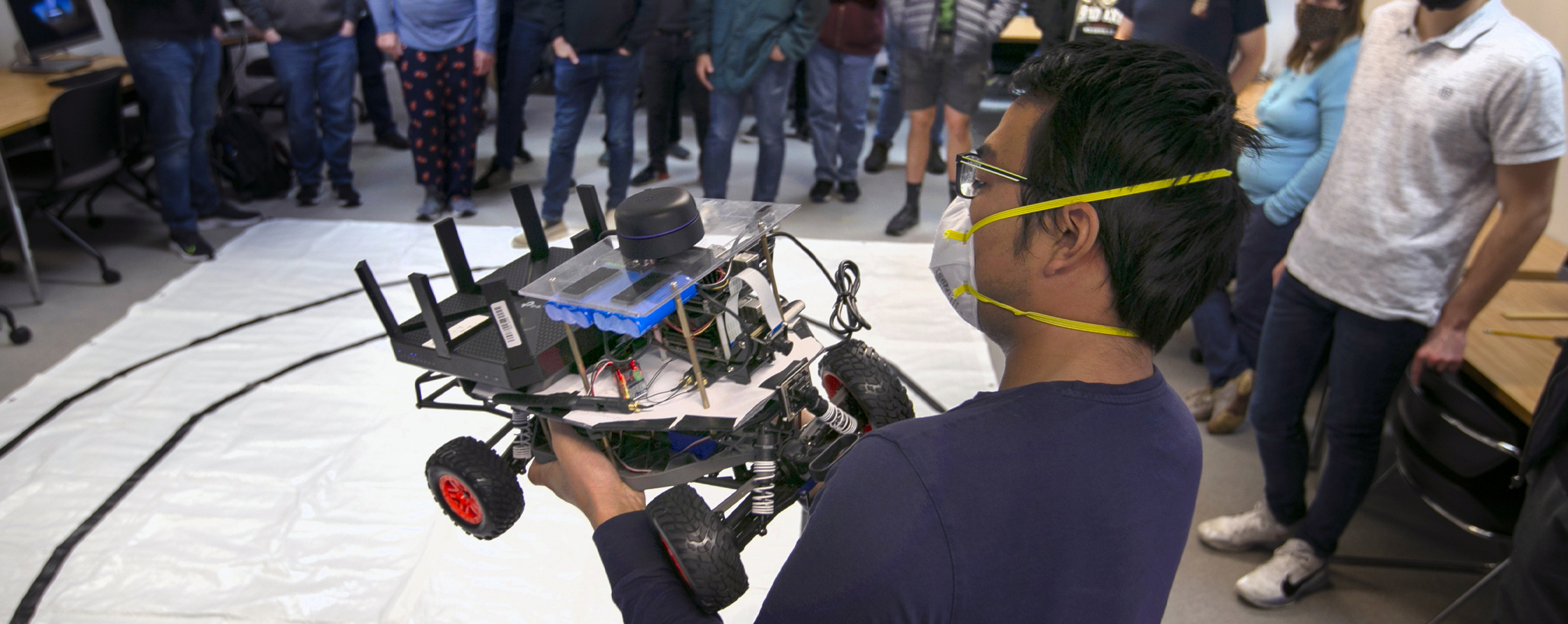
Haijian Sun, an assistant professor of computer science at the University of Wisconsin-Whitewater, has received a $200,000 grant from the National Science Foundation to build advanced communication systems for self-driving vehicles.
“In the very near future, we expect the growth of smart cars to be very explosive. My project will enable cars to connect with each other seamlessly, efficiently and reliably,“ said Sun.
While research on automated cars has improved their self-driving capabilities, connectivity technology lags far behind. Connectivity is an essential function for cars to talk to each other and identify roadside events like road construction and accidents. This could provide timely traffic alerts, advice and warnings to a car’s decision-making process.
“The fatality rate on highways is very high right now, and we believe that smart cars can reduce the fatality rate if cars can exchange information quickly and tell each other what’s happening on the road,” he said.
Sun’s innovative approach uses a combination of lasers, cameras and wireless technology.
In 2021, Sun received UW System’s Regent Scholar Grant along with two of his colleagues, Jiazhen Zhou and Hien Nguyen, both associate professors of computer science. The program provided $50,000 for undergraduate research, which resulted in Sun and his students inventing an autonomous driving test vehicle they call the HawkRover.
Assistant professor Haijian Sun received a $200,000 grant from the National Science Foundation to build a self-driving vehicle that moves and communicates with other vehicles via lasers and cameras. The grant funds two years of graduate and undergraduate research. (UW-Whitewater video/Jeffrey Pohorski)
Sun says that he has not seen anybody else build a vehicle that performs the same tasks as the HawkRover. He and his students hope to take it to the next level with the funding from the NSF grant, integrating the HawkRover system onto a full-sized vehicle.
“All together, we believe that this work can help formulate a new era in intelligent transportations systems.”
About $89,000 of the grant will fund undergraduate and graduate students who will be involved in every aspect of this groundbreaking research. Sun wants to give back to students all that he has learned.
“He makes the time and the effort to work with you, and I think that is very unique and special,” said Jack Schnor, a computer science major from Jackson, Wisconsin. Shane Flynn, a computer science major from Belvidere, Illinois said that “this is probably the best environment someone could find in order to bridge the gap between classroom and professional work.”
The grant also supports STEM K-12 student summer camps, new undergraduate and graduate courses in machine learning and random processes, and a redesign of undergraduate courses in computer networking. The grant period begins May 1, 2022, and runs through June 30, 2024.
For more information, contact Haijin Sun at 262-472-5167 or sunh@uww.edu.
